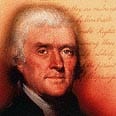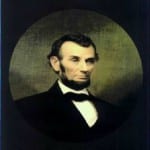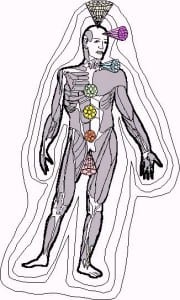Challenge & Choice Part 1
The Challenge And Choice Method For Changing Your Relationship To Life
The mission of the challenge and choice program is to bring responsible choice to health care through medical insight awareness training and health education.
Part 1: Take a Stand
Human kind often finds itself questioning the meaning of existence. Sometimes the need to answer this question can be so overwhelming that any joy that is available in life is lost. If only this question could be answered, then things would be better. Priorities would be realigned. Purpose would motivate. Love would reestablish itself and suffrage would abate.
While there are numerous tools available to help man search for the meaning of life, for many the meaning of his individual life remains elusive. The Challenge and Choice program provides a methodology that enhances personal insight awareness, unlocks the freedom we possess inside and gives guidance, which promotes responsible action.
In order to participate in the Challenge and Choice Home Tutorial, start with Part One, Step One. It is not enough to simply read each step, rather you must actually do each step. Reflect upon the questions asked in the red font, learn and understand the links in the blue font and follow the steps in the order they are presented.
Part One:
Step One
Viktor Frankl (1,2) is credited with developing Logotherapy, a therapeutic method that shifts the focus from the meaning of life to the freedom to make a stand in life. Man does not ultimately have the freedom to control the conditions that dictate his life. Ask yourself: Which absolute freedoms to set conditions do I have? When reflecting upon your answer, consider: Can that freedom be taken away? Ultimately, essentially all of man’s freedoms can be taken away, with the single exception of the freedom to take a responsible stand. Frankl teaches that the exercise of responsible choice is what defines the meaning of existence, for without it the freedom to take a stand is degraded into arbitrary irrelevance.
Logotherapy further explains that there are three primary methods by which man learns how to make his choices relevant. They are power, love and suffering. Think of an event that holds special meaning to you and identify which method of learning was used. Recall other events and determine which of the three primary methods of learning was used. Once you are convinced that either power, love or suffering was involved, it should becomes obvious that man cannot even set the conditions under which he learns and that responsible choice is in fact his only absolute freedom.

Step Two
For many, an easy way to start upon the path of self-discovery is through Psychogeometrics (3,4). All you have to do is pick the shape you identify with most. This tool easily accommodates growth in personal insight. How is it possible that just by choosing a shape that fits best, so many personal characteristics can be pre-defined? This could only occur if those who relate to a particular shape have shared features in their personality. Even these elements are to at least some degree beyond man’s control.
Step Three
The Enneagram (5,6) provides a greater level of insight into the challenge that each of us faces. While nine distinct personality types are defined, each has an underlying issue associated with it. Individuals can decide which of the nine best fits their circumstance by examining the features and challenges unique to each one.
Next, choose which personality type you belong to. When deciding which descriptor fits best, sometimes looking at rational criteria helps settle the question; at other times it is more effective to examine intangible issues. In the following paragraphs, words in red identify the feeling that best identifies habit of mind and words in blue identify the point of focus for responsible choice on the pathway toward greater health. If it is still not clear, remember that each person may share features of each personality at different times. Irrespective of this, there is only one that is home base. The others, referred to as wings or directions of integration and disintegration, are only temporary excursions.

Thomas Jefferson, “The Perfectionist”
The Perfectionist has an inner need to be heard. He needs to be perfect in order to gain love, and therefore is constantly challenged with the issue of betrayal. Since anger is unacceptable to the One, resentment serves to represent the battle that rages between his head and heart. If this battle becomes consuming, others may view the One as intolerant and self-centered. The developed One understands that he frequently has set himself up for the betrayal that he experiences, and learns to make responsible choice that lets go of judgment when confronted with new opportunities for the same.

Mother Teresa, “The Giver”
The Giver on the other hand is driven by self worth that is measured by how well they have served others. There can be a constant emptiness, with little understanding of personal emotional needs despite an understanding of those same needs in others. When service is given, and not appreciated, guilt can overwhelm the Two. If the service required is too taxing, they no longer perform with a smile, but rather with an attitude. Others paradoxically interpret this as selfishness. The developed Two learns to exercise responsible choice with consideration of distinction when confronted with challenges that involve personalism.

Bill Clinton, “The Performer”
The Performer questions self worth. As a result, he is overly concerned with outward presentation and measurable results. The Three is usually quite good at understanding the emotional needs that motivate others and uses this insight as a tool to get things done. Because commitment to performance haunts the Three, who, and where he spends his time is terribly important. While the Three sees this as self-sacrificing, others see a second agenda and deceit instead. The developed Three learns to use compassion without condemnation or justification when challenged with responsible choice that involves acceptance, and to promise only what can be delivered.

Michael Jackson, “The Romantic”
The Romantic has no problem with taking a stand, and in fact can do so fiercely. Unfortunately battle between conscious reality and sub-conscious emptiness frequently turns this aptitude into an emotionally filled event. Seeing oneself as separate from the outside world can give rise to passionate craving, hatred and ignorance. When this occurs, others interpret the Four as creating conditions intended for rejection. If suffrage is the path of learning, then tragedy may follow. It is only when the Romantic learns to detach from the need to be affirmed by others that unconditional support follows. For the developed Four, self-confident responsible choice based in clock time (the current moment), rather the psychological time (anxiety connected to the past or fear of the future), opens the door to relational dynamics where victimization is absent and love fullness replaces love lessens.

Bill Gates, “The Investigator”
The Investigator is challenged with personal authenticity and professional position. They can accurately size up others and are willing to go without to help the downtrodden. They would rather be left alone however, surrounded by material pleasures in their search to find meaning. In public they put on a masquerade, anxiously hiding the empty sadness and insecurity buried deep within them. When they feel overwhelmed, however, their desire to withdraw becomes dominant. Others then find the Five to be stingy or lacking in substance. The developed Five no longer looks to avarice for security but rather toward his own capable actions. Responsible choice, predicated upon accountability, opens honesty in character and enhances insight awareness.

Princess Diana, “The Trooper”
The Trooper has a deep-rooted fear based reality. They naturally focus on what can go wrong and therefore are excellent devil’s advocates. Since their heightened awareness makes them naturally sensitive to the problems of others, the group may look toward the Six for advice. They can fulfill this need for a while, but eventually paralyzing anxiety surfaces. As a defense mechanism, the Six then rebels against the person or group that entrusted him to begin with. This circular pattern can be broken if the Six learns to stop seeking confirmation from others and bases actions upon what he does know instead. The developed Six learns to exercise responsible dignity in the position he holds and the choices he
makes.

Mozart, “The Epicure”
The focus of the Epicure is on happiness in order to avoid looking at loneliness and insecurity. Sevens are fun loving, spontaneous and imaginative. They are impulsive, unfocused and narcissistic. Unfinished tasks can plague the Seven. They do not like to be confined. If they feel deprived then desperation may set in. There is difficulty in achieving balance between self, others and gluttony or sobriety. The Seven ultimately must learn that in order to rid themselves of loneliness they must share both happiness and sadness. The developed Seven maintains hedges and options, but exercises responsible choice based upon commitment to a single course of action and keeps a proper awareness of the work that needs to be done.

Martin Luther King, “The Boss”
The Boss is challenged with issues surrounding vulnerability and misguided trust. The Eight can be an effective leader, and has no problem with aggression or following gut instinct. In the process, however, they may cross the line. Once they have done so, the Eight believes there is no going back. Their isolation is dealt with by using denial, which sets them up for even more rejection. Vengeance and fury result and the chasm with others widens again. Ultimately the Eight seeks to integrate their instinct with a true picture of reality. In order to achieve this, they must realize that their challenge is to develop responsible choice based on trust of the inner self, not of others.

Abraham Lincoln, “The Mediator”
The Mediator searches for autonomy and independence. They want to be recognized for accomplishments, but responsibility gets in the way. They are naturally gifted at creating a framework for success and at listening to others. The Nine will turn a blind eye toward problems they do not want to deal with, wanting to obtain peace at any price. Enduring stress from the dissociation between self and reality eventually becomes overwhelming. When this occurs, others perceive passive-aggressive behavior, an ineffectual persona and lack of instinctive drive. The developed Nine learns that they can never be divorced from themselves, and that responsible choice based in integrity will allay fears of loss and separation.
Whether Psychogeometrics, the Enneagram or an alternative tool is used, the remarkable similarities that individuals discover betwen themselves and their description of personality type suggest that these elements are predefined. In fact, it is not at all necessary to really know someone in order to know a lot about them.
Step Four
In the quest to gain medical insight personality typing should be viewed as a broad stroke setting. In order to make it more personal, individual characteristics must come into play. These features can be most difficult to see. The mind tries to repress emotion, making what is obvious to others, foggy or absent to one self. Fortunately, mankind is both body and spirit, and can utilize the physical manifestations of disease as a clue to underlying issues.
It is well accepted that the brain has structural logic; clearly identified regions control motor, sensory and other vital organ functions. There are also defined areas of the brain that are responsible for abstract reasoning, higher cognition (reading, speech, etc.), and reflexive response including fight or flight. Psychodynamic behaviors such as tightening in the chest when looking at forgiveness, or choking in the throat over a decision, however, have both somatic (neuro-musculoskeletal) and visceral (internal organ) elements. Emotional Referral Zones describe the relationship between these elements.
Sarno (7) has long practiced medicine according to the precept that the mind masks repressed emotion by creating pain, discomfort or disease in the body. More recently Myss has popularized this concept through publications publications such as Anatomy of The Spirit (8). She categorizes, into seven areas of the body, both the emotional issues and physical diseases that occur as a result of repressed emotion. These seven areas can be called Emotional Referral Zones (9).

Personality typing (step 3) provides great insight into the challenges of life. This step goes further — by taking an inventory of physical manifestations of disease by region, and then correlating the emotional issues to that referral zone, an individual’s relationship to the challenge they face can be defined. Each case is different, but at least one of the issues in that referral zone should strike a cord. When questioning “Why is this particular pain, or disease, so threatening?” check to see if the body part affected houses the emotion behind that person’s life challenge; if so, the answer becomes self-evident.
Challenge and Choice Part 2
Challenge and Choice Page
Challenge and Choice References
Challenge and Choice Videos





